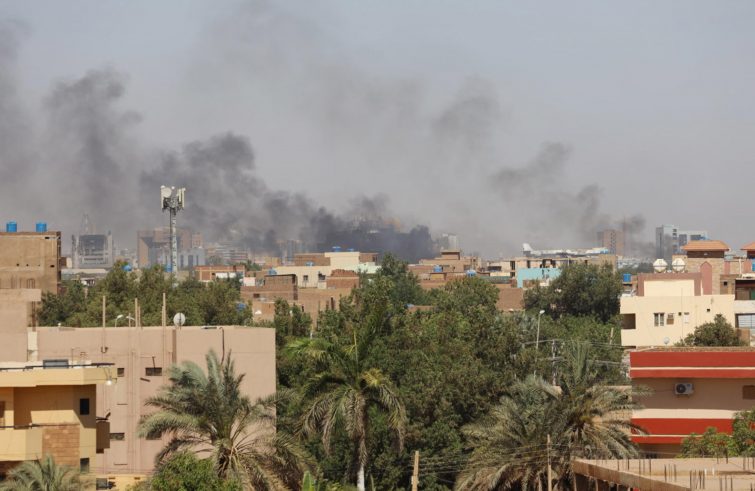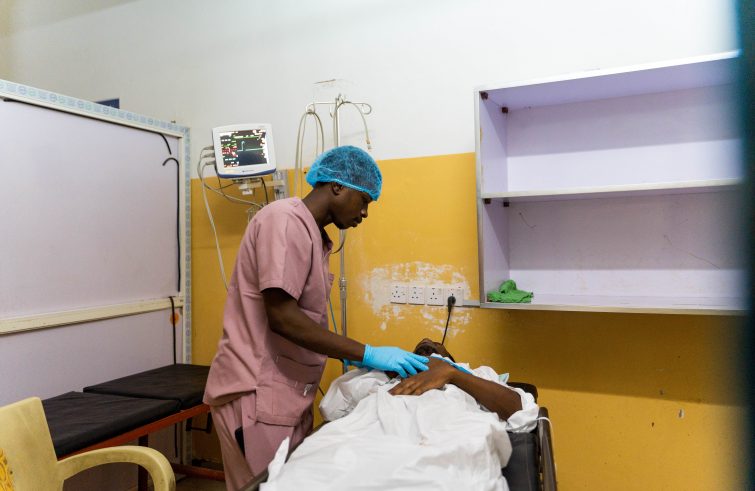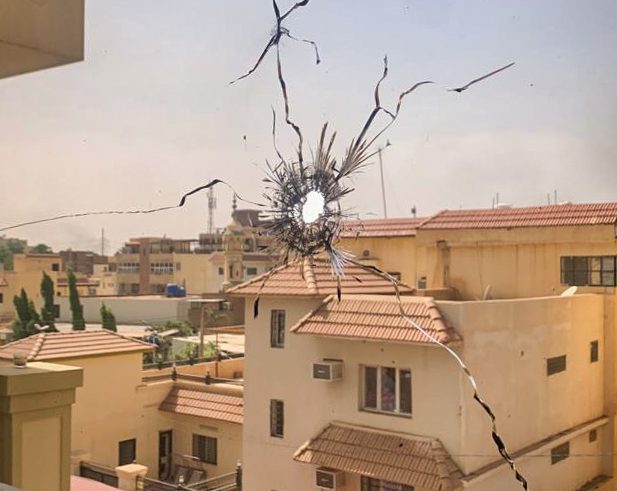
Panic, uncertainty and widespread chaos persist in Sudan. Five weeks after fighting broke out between the army of General Abdel Fattah al-Burhane and the paramilitary Rapid Support Forces (RSF) commanded by General Mohamed Hamdan Dagalo, the one-week ceasefire signed in Jeddah on May 20, to allow the safe passage of soldiers, civilians and give access to humanitarian aid, was breached on the morning of May 23. Air strikes and shelling hit Khartoum. Military helicopters bombed paramilitary positions in Omdorman, an extension of the capital city located on the west bank of the River Nile. The two rival factions accused each other of violating the ceasefire.
“Military and civilian gangs are looting factories, shops and private homes in Sudan, not least because people are left with no food and are hungry. The risk of outbreaks of diseases is high because of the many corpses on the streets. There are fears that the violent clashes may spread to other areas of the country. We hope that it will not escalate into an all-out civil war triggered by ethnic conflict” said Fabrizio Cavalletti, in charge of the Africa office of Caritas Italy, in close contact with the local Church and Caritas agencies in South Sudan that are currently taking in hundreds of thousands of refugees at the border.
“They are South Sudanese returnees who need full assistance”, Cavalletti remarked. They were forced to flee from violence and fighting, unable to access necessities.
They are in need of essential core relief items, shelter, accommodation in other parts of the country to alleviate the pressure of refugees at the borders.”
Most missionaries and international organisations – including a number of national Caritas agencies – have fled the capital Khartoum. Caritas Sudan is currently non-operational. The Comboni missionaries and the Salesian religious moved to safer inland locations in the country.
It is estimated that 50,000 to 300,000 South Sudanese refugees fled to Sudan during the years of the civil war and have now been forced to return. “The death toll and the number of displaced persons are largely underestimated – he pointed out – because those who flee often fail to register with humanitarian agencies.”
A number of diocesan Caritas and national Caritas agencies- under heavy pressure these days- are actively addressing the needs of refugees in South Sudan. The Caritas centre in Malakal has provided
a boat to transport the refugees flocking to the border to safety on the Nile, and is providing them with basic necessities.
It is an emergency within an emergency, as South Sudan has been suffering from an acute food and humanitarian crisis for a long time already. At least 2 million people are internally displaced in the country, following the armed conflict that claimed one million lives in the years 2013- 2018, leaving a staggering 10 million refugees and internally displaced persons, including in neighbouring countries.
An emergency within an emergency. “We had existing relief projects to address the food crisis ongoing in South Sudan,” Cavalletti remarked. “Now the same resources are being deployed. As Caritas Italy we have made ourselves available for further support, unfortunately we have to rely on donations, which are not very substantial.”
One million newly internally displaced persons in Sudan. Sudan already counted 3.7 million internally displaced persons (IDPs) as a result of political and ethnic strife as well as 1.1 million refugees and asylum seekers prior to the present conflict. According to the OCHA (United Nations Office for the Coordination of Humanitarian Affairs)
Over 936,000 people have been newly displaced by the conflict since 15 April, including 736,200 people displaced internally and 250,000 who have crossed into neighbouring countries
At least a thousand have died since 15 April. The Sudan Medical Union estimates that 863 civilians have died, with 3,531 people wounded.
 The medical facilities of Médecins Sans Frontières (MSF) have likewise been looted at least a dozen times, with numerous attacks. The latest occurred a few days ago. An MSF warehouse in Khartoum was looted. Medicines were discarded after looters unplugged fridges. As a result, the entire cold chain was ruined, the medicines are spoiled, leaving patients without medical treatment. The humanitarian medical organisation condemned the “deplorable attacks on its healthcare workers and the violent looting and armed occupation of its medical facilities and those it is supporting in Sudan.”
The medical facilities of Médecins Sans Frontières (MSF) have likewise been looted at least a dozen times, with numerous attacks. The latest occurred a few days ago. An MSF warehouse in Khartoum was looted. Medicines were discarded after looters unplugged fridges. As a result, the entire cold chain was ruined, the medicines are spoiled, leaving patients without medical treatment. The humanitarian medical organisation condemned the “deplorable attacks on its healthcare workers and the violent looting and armed occupation of its medical facilities and those it is supporting in Sudan.”
 The United Nations special envoy to Sudan Volker Perthes warned of a “growing ethnicization” of the conflict that risks “engulfing the country in a prolonged conflict, with implications for the region.” “In parts of the country, fighting between the two Armies or the two armed formations has sharpened intercommunal tensions or triggered conflict between communities”, he added, pointing out that “worrying signs of tribal mobilization are also reported in other parts of the country particularly in South Kordofan.” The UN’s priority now is “to prevent the escalation or ethnicisation of the conflict.” Sudan fears damage to the pipeline that transports crude from the oilfields to Port Sudan on the Red Sea. A failure of this infrastructure would have very serious repercussions. Local emergency response teams are working with all the stakeholders and their counterparts in the Republic of Sudan to ensure continued production of crude oil in South Sudan.”
The United Nations special envoy to Sudan Volker Perthes warned of a “growing ethnicization” of the conflict that risks “engulfing the country in a prolonged conflict, with implications for the region.” “In parts of the country, fighting between the two Armies or the two armed formations has sharpened intercommunal tensions or triggered conflict between communities”, he added, pointing out that “worrying signs of tribal mobilization are also reported in other parts of the country particularly in South Kordofan.” The UN’s priority now is “to prevent the escalation or ethnicisation of the conflict.” Sudan fears damage to the pipeline that transports crude from the oilfields to Port Sudan on the Red Sea. A failure of this infrastructure would have very serious repercussions. Local emergency response teams are working with all the stakeholders and their counterparts in the Republic of Sudan to ensure continued production of crude oil in South Sudan.”










